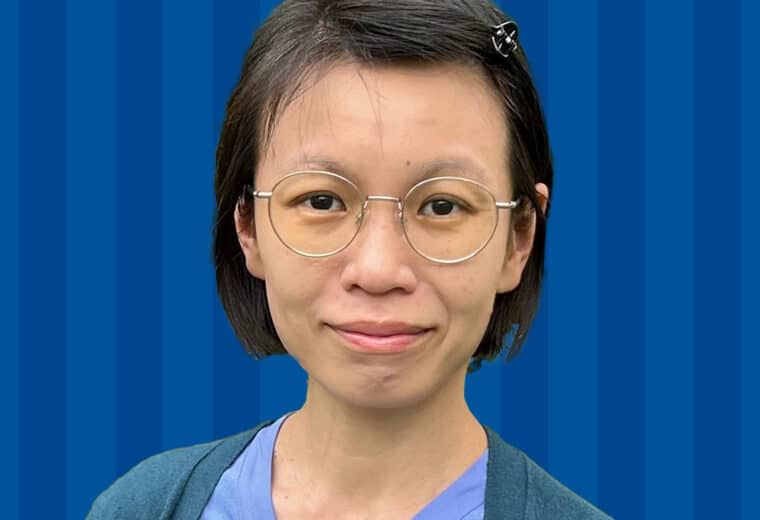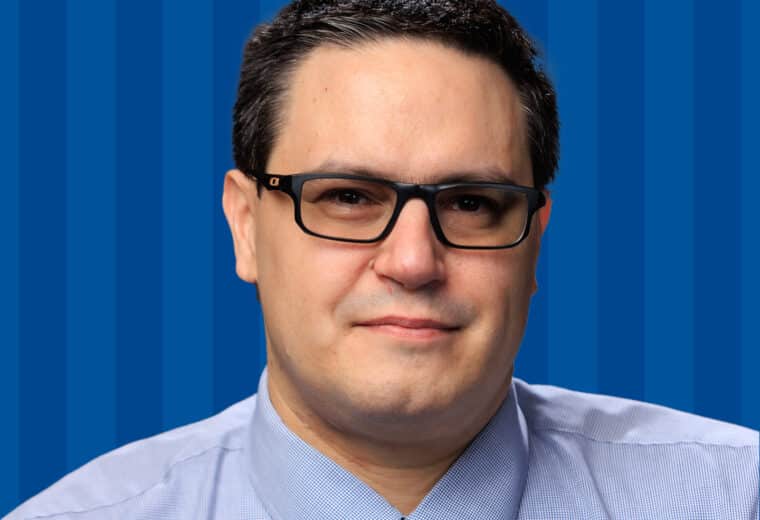
Xiang Cheng: Using Geometry to Push AI’s Boundaries
New faculty member Xiang Cheng exploits geometric patterns in data and algorithms to find better ways to train advanced AI programs
New faculty member Afsaneh Rahbar is using her love of mathematics and logic to teach the next generation of great computational thinkers

Afsaneh Rahbar joined the faculty of Duke Engineering’s Department of Electrical and Computer Engineering as an assistant professor of the practice beginning January 1, 2024. With a long-standing passion for mathematics and logic, Rahbar has spent years combining these talents into research into network optimization and data center architectures. Now, she looks to pass along her knowledge to Duke students looking to master computation theory, systems engineering, data structure and other related topics.
During her years as an undergraduate student majoring in computer science at Azad University in Tehran, Iran, Rahbar took on an extra credit assignment that changed her life. The task involved work on a compiler program—the computer software that translates high-level programming languages like JavaScript or Python that are more akin to English into the 1s and 0s that hardware can actually execute.
“I found compilers to be extremely logical and similar to what I also love about mathematics,” Rahbar said. “It’s a magical part of computer programming that most people aren’t even aware is going on.”
That deep interest in exploring the complexities and logistics that execute programs led Rahbar to pursue a PhD in computer science at the University of Texas – San Antonio. After her advisor moved to the East Coast, she finished her thesis work at Rice University before becoming a visiting researcher at Carnegie Melon University.
“I found compilers to be extremely logical and similar to what I also love about mathematics. It’s a magical part of computer programming that most people aren’t even aware is going on.”
ECE Professor Afsaneh Rahbar
Throughout her years working on research, however, she yearned to teach these topics to eager, bright students. Rahbar applied to many positions in academia focused more on teaching than research and received several offers. But she chose to come to Duke in early 2022 for a post-doctoral position that would help her bridge the space between primarily research and primarily teaching.
She didn’t know much about Durham at the time, other than it looked pretty small on Google Maps. But, she figured, if she could handle big moves in her life between France, Iran and Texas, she could handle the transition to North Carolina. After spending a couple of years at Duke, she was hooked.
“Once I got to know the people and the culture here, I learned to love it,” Rahbar said. “Duke has a little bit of everything. The people are kind, the nature is beautiful, and there’s four seasons that aren’t too harsh. But not a lot of people know how great this area is.”
As an avid outdoors enthusiast, the opportunities presented by North Carolina fit perfectly with Rahbar’s interests. Whether biking, hiking, climbing, swimming—or getting back into horseback riding, which she grew up doing—she has embraced what the community has to offer.
She’s also embraced the active student body at Duke that she has been working with since her move. Rahbar teaches a range of classes from software engineering for undergraduates to graduate courses on the theory of computation and algorithms and systems engineering. She’s also considering adding a course on data center networking in the coming year.
“My students are incredibly engaged, asking questions, solving problems in teams and volunteering answers through class,” Rahbar said. “I try to provide an interactive classroom experience, and they seem to really appreciate it. I don’t even need to have a cell phone policy.”
Once Rahbar has settled into a routine with the suite of classes she has been developing, she also plans to continue spending some of her time on research. Continuing to push the boundaries of the best compiling software and data architectures will not only fulfill her passion for exploring this topic, it will also help her ensure that her students remain one step ahead of artificial intelligence in the job market.
“As long as you’re an above-average software engineer, AI will not replace you,” Rahbar said. “So if I can prepare my students to stay ahead of that curve, their careers will be set.”

New faculty member Xiang Cheng exploits geometric patterns in data and algorithms to find better ways to train advanced AI programs

New faculty member Huanqian Loh brings a new quantum computing approach to the expanding expertise of the Duke Quantum Center

New faculty member Javier Pastorino brings a wealth of industry and academia experience in data management to Duke Engineering’s classrooms